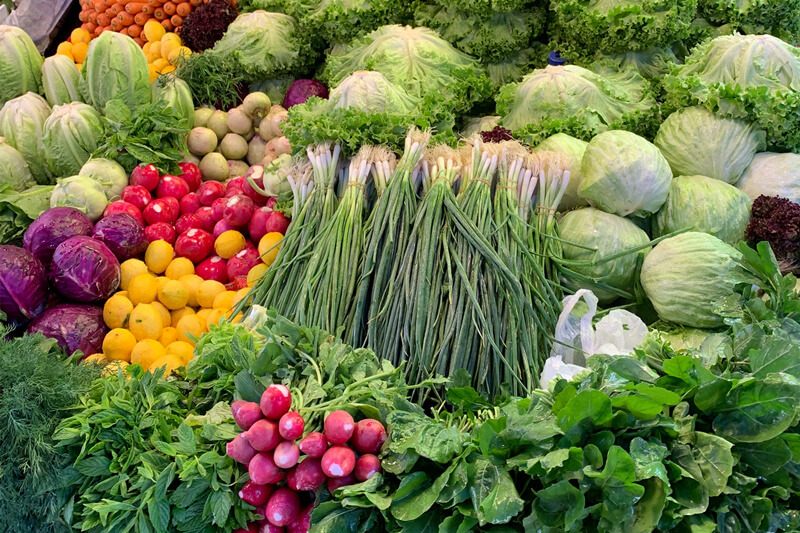
Maximizing Fruit and Vegetable Production in Kenya:
A Look at Orion East Africa's Crop Protection Solutions
Kenya's vibrant horticultural sector is a significant contributor to the nation's economy. However, fruit and vegetable production can be challenged by various pests and diseases. This blog explores the importance of crop protection and how Orion East Africa's solutions empower Kenyan farmers to cultivate healthy, high-quality produce.
The Importance of Crop Protection in Kenyan Horticulture
Effective crop protection safeguards fruits and vegetables from a multitude of threats, leading to several benefits for Kenyan farmers:
- Increased Yields: By controlling pests and diseases, crop losses are minimized, resulting in higher overall yields and improved profitability.
- Enhanced Crop Quality: Healthy, disease-free fruits and vegetables have better visual appeal, longer shelf life, and potentially command higher market prices.
- Reduced Post-Harvest Losses: Effective crop protection measures can minimize spoilage and rotting during storage and transportation, leading to less product waste.
- Sustainable Production Practices: Integrated crop protection strategies often involve promoting beneficial insects and natural control methods, contributing to a more sustainable agricultural approach.
Common Threats to Fruits and Vegetables in Kenya
Several pests and diseases can significantly impact Kenyan fruit and vegetable production:
- Insects: Aphids, fruit flies, and mealybugs are just a few examples of insects that can damage fruits and vegetables by feeding on leaves, fruits, or transmitting diseases.
- Fungal Diseases: Fungal diseases like powdery mildew and blight can cause significant damage to leaves, fruits, and stems, reducing yield and quality.
- Bacterial Diseases: Bacterial diseases like bacterial wilt can infect plants through wounds or natural openings, causing wilting, stunting, and potentially crop death.
- Viral Diseases: Viral diseases, often spread by insects, can cause stunted growth, distorted leaves, and discolored fruits, rendering produce unmarketable.
Orion East Africa: Safeguarding Your Harvest
Orion East Africa offers a range of crop protection solutions to empower Kenyan farmers:
- Insecticides: A variety of insecticides targeting specific insect pests might be available, such as those targeting aphids, fruit flies, or mealybugs.
- Fungicides: Orion East Africa likely offers fungicides to combat various fungal diseases like powdery mildew or blight, protecting your fruits and vegetables.
- Bactericides: While less common, some companies might offer bactericides for specific bacterial diseases affecting Kenyan crops.
- Integrated Pest Management (IPM) Support: Orion East Africa might advocate for and provide resources on IPM practices. IPM combines various methods like biological control, cultural practices, and judicious use of pesticides for sustainable pest and disease management.
Optimizing Crop Protection Strategies in Kenya
Here are some additional recommendations for successful crop protection in Kenyan horticulture:
- Monitor Your Crops Regularly: Regularly inspect your crops for signs of pests and diseases. Early detection allows for prompt intervention before infestations escalate.
- Practice Crop Rotation: Rotating crops disrupts pest and disease life cycles, making it more challenging for them to establish themselves.
- Promote Beneficial Insects: Encourage the presence of ladybugs, lacewings, and other beneficial insects that prey on harmful pests.
- Maintain Field Sanitation: Remove crop residues and weeds from your fields after harvest to eliminate potential harborage sites for pests and diseases.
- Use Pesticides Responsibly: If using pesticides, choose the right product for the target pest or disease, follow label instructions meticulously, and prioritize using selective options whenever possible.
Conclusion
By prioritizing crop protection and utilizing solutions from Orion East Africa like insecticides, fungicides, and promoting IPM practices, Kenyan fruit and vegetable growers can cultivate healthy, high-yielding crops, enhance market competitiveness, and contribute to a flourishing horticultural sector. Remember, a proactive approach to crop protection is essential for achieving success in Kenyan agriculture.




